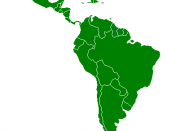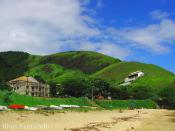Over the years, culture has been defined as a set of learned behaviors and beliefs in a form of human activity. This also includes values, traditions, or lifestyle shared by a particular society at a particular place. According to Houl, there are four key components of culture (Houl, T.F. 1969). These are values, norms, institutions, and artifacts.
By definition, values are set of ideas about life and the important things related to it. Norms are expectations on the behavior of the people. Institutions are the structures of societies where values and norms are learned. Lastly, artifacts are the things or aspects of material culture, which is also products of values, norms, and traditions of a culture.
In studying culture of a certain country, there are five concepts to consider in this research. These concepts are the culture region, the cultural diffusion, the cultural ecology, the cultural interaction, and the cultural landscape.
The cultural region is the region where you focus your study. It may be the culture of America, Africa, the Middle East, or Asia. These regions are influenced with other cultures. The cultural diffusion is composed of how ideas are spread from one culture to another. The cultural ecology is the study of relationship between humans and its natural environment. The cultural interaction is the study of how individuals interact within a society. Finally, the cultural landscape is a landscape created by people and their culture, and a simultaneous product of nature and the human interaction with nature.
Brazil: Human GeographyIn this research, I want to focus at Brazil. Brazil is the largest country in South America. Brazil's official name is the Federative Republic of Brazil and its capital is Brasilia. Upon studying Brazil, I want to focus on a little information about the country, and more on the...


